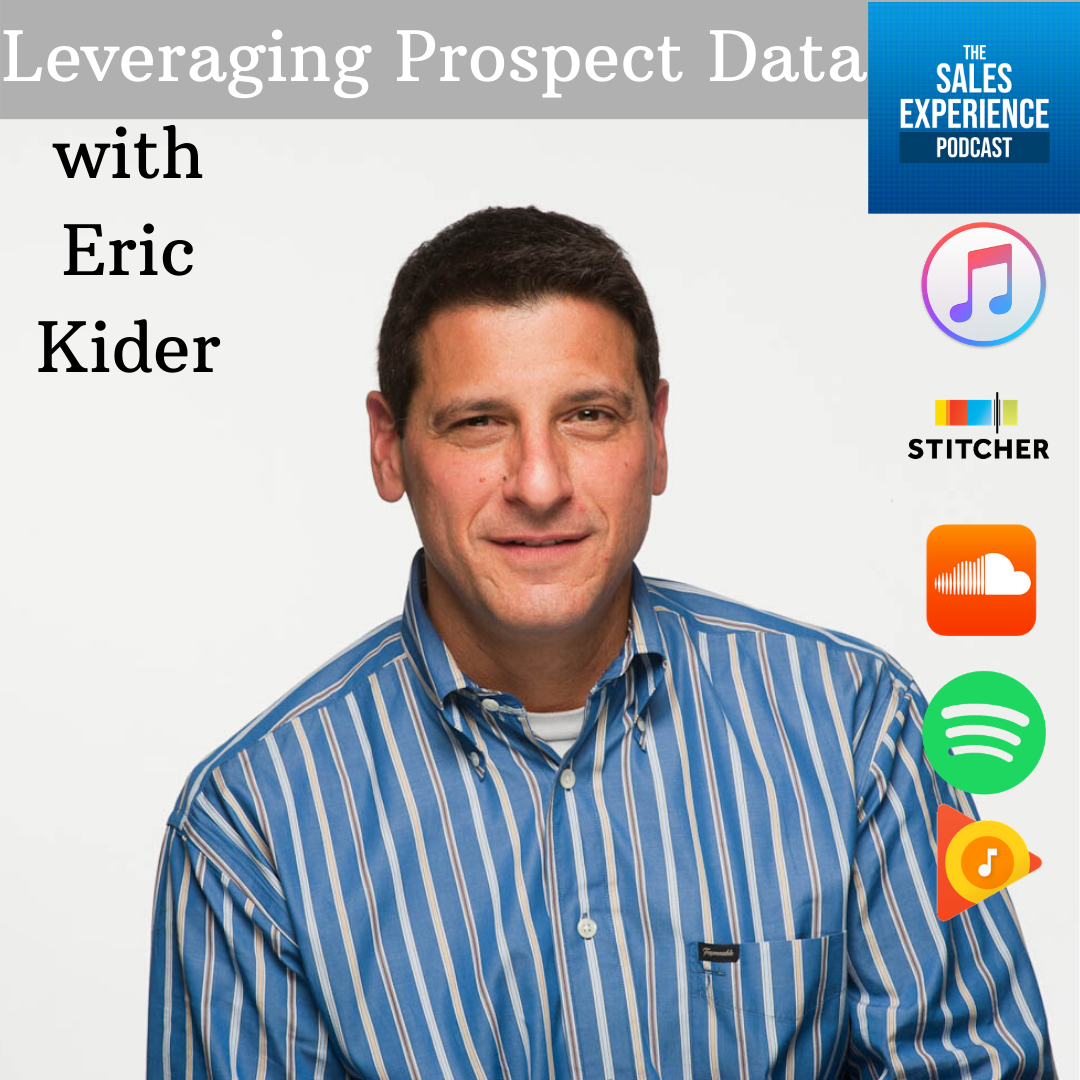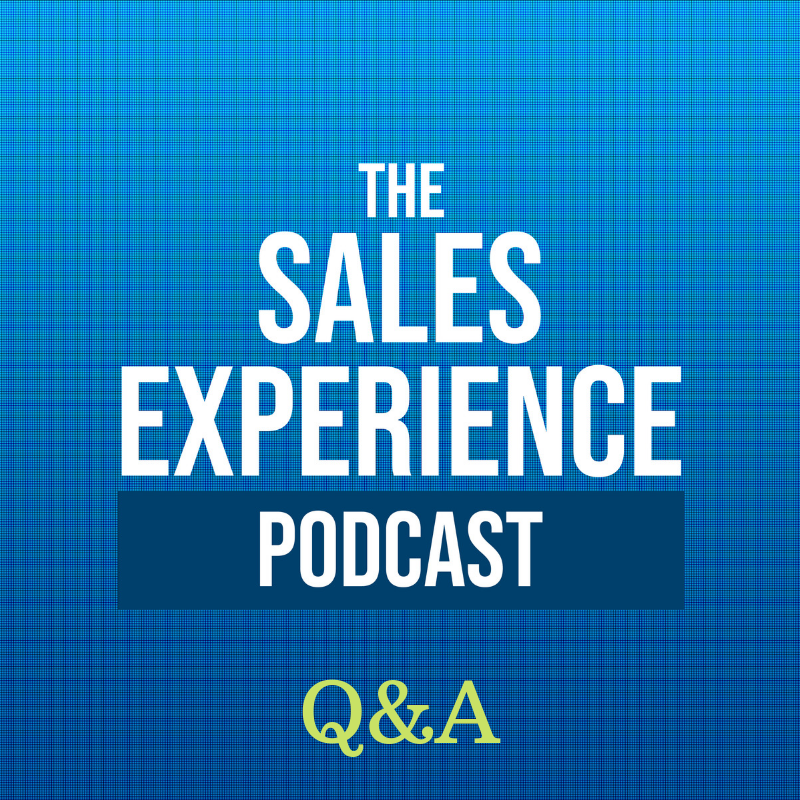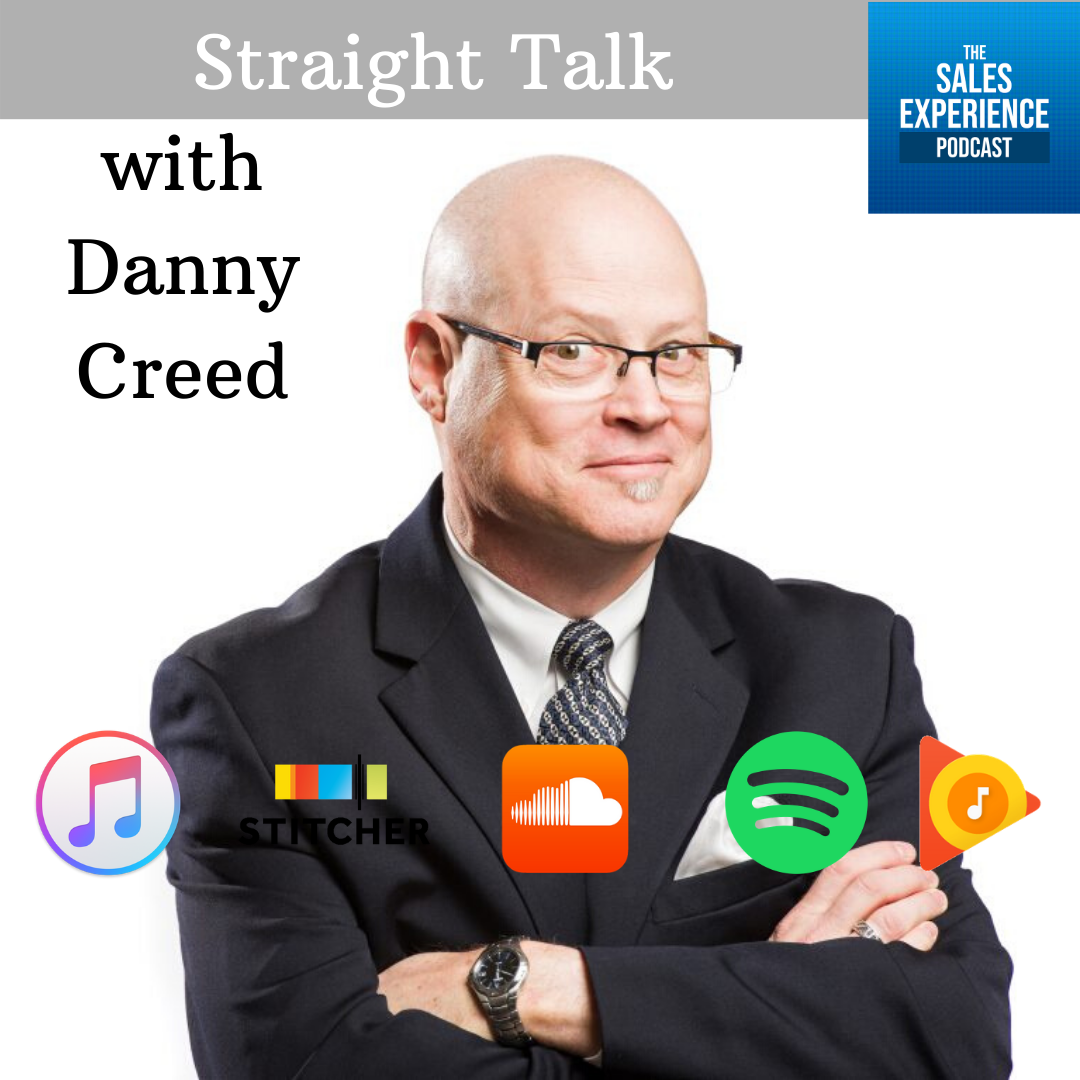Episode Transcript
Jason: I am so glad that you're here. I'm so glad that you're taking the time to hopefully up a level, your sales career or your sales team. By listening to podcasts like this, hopefully you've subscribed. If not, make sure to subscribe. And if you like this, leave a rating and a review. And in this episode, I am going to address some sales related questions to try to help everybody in sales do more, be more and sell more with their career and achieve their goals.
Now let's go ahead and jump into this episode. So I recently made a post online on my LinkedIn account and also a video. Talking about selling drills versus selling holes. The challenge is that a lot of salespeople are selling drills and what the customer wants is a hole. Now, what does that mean?
It's obviously an analogy is that the customers are looking for the solution. They want something that helps their Specific situation, their problem, their issue, or achieving some kind of goal. And they want the whole, right? They're not buying a drill, they're buying the whole. And they're really actually not buying the whole, if you want to be honest about it.
They're buying what that whole will allow them to do, or maybe it's putting in a nail in the wall, or some kind of situation for hanging a picture, right? And that's not even the end result. What they want is to hang that picture so that their house looks better. And that's not even it. They want their significant other to be happy because they want a picture put up on the wall.
Not only are they not buying a drill for what the drill is, they aren't even buying the hole. They're buying something way down there. But the problem is so many people in sales are selling the drill. What does that mean? They're selling the benefits. They're selling The features they're selling the brochure.
They're telling people what it is that the drill is, what the drill does. And instead of thinking about the customer, they're thinking about themselves and whatever you sell in your industry, you might do the same thing, or you have something similar, which is. You're selling the features, we're, everyone's told to sell features and benefits, sell the benefits only, salespeople get confused, they don't know what to do, and why does this really happen?
The reason why this happens with salespeople, in my experience, where they're selling The features and not selling the benefit, they're not selling the whole is because they're too focused on themselves. They're being self centered. When I hear salespeople do this, it's because they're only thinking about themselves.
They're thinking about their product, their service, and they're focused on what it is that they have to offer and not the other person. And it really comes down. To this self centered point of view and falling into this self centered trap. That's where the issue is. And if you find yourself going on and on about features, especially early in the conversation, where you haven't even really diagnosed what the other person needs or wants.
If you're still rambling about features, then you have fallen into this self centered trap and you're forgetting that people literally don't care about you. They don't care about your features, they don't care about your company, they don't care about your accolades. All they care about is themselves.
There's a phrase, always remember, what's in it for me? W I F M, what's in it for me? That's what your customer's thinking about. Not you, the salesperson. Nobody cares what's in it for you, the salesperson, your prospects care about what's in it for them, the customer. How is it going to help them? How is it going to improve their life?
And that's the key. And when you solve that, when you really focus on that with your customers, then what will happen is you will get your side taken care of. That's why my absolute favorite quote is from Zig Ziglar and it's help enough other people get what they want and you will get everything that you want.
And so the first step is that helping other people, so you've got to focus on that for the same reason. Another example, people don't care about all the fancy equipment at a gym, at a health club, right? They don't care about how fancy it is. They care about what it will do for them and how it will get them to what their goal is.
Now, of course, they might want nice stuff, but there's also gyms where it's not very nice. It's not very fancy. There's no features there, maybe no air conditioning. There's no TVs on the wall. There's no fancy stuff. But people don't care because they're there for the results. They know what they want to achieve and that's what they're there for.
So now that we've got that covered, now that you understand that, hopefully you can make that shift away from you, yourself, your company, your accolades, your features in the beginning of the conversation and focus on them. Of course, and I can already hear some people typing away, wanting to send me messages or find me online and tell me I'm wrong.
People do care about your features. They do care about your benefits. They care about your accolades. They care about social proof. They want to know that they can trust you. They want to know that your company is valid after you've indicated to them that you care and that you can also help them get what they want.
Once they see that you have the value for them, right? That you can help them get the hole that they need in their wall relative to what you do. Then their brain is going to shift to, okay, now can I trust you? Now should I work with you? Now should I buy from you? And then that's where that shift happens.
And then you can bring in those other things. I'm not talking about never speaking about your features or about your social proof, your testimonials. All that stuff is important at the right time. Let's talk about how to start selling holes, how to start selling the benefit and the value to your customers instead of yourself.
Step number one, ask more questions. The key is that I see is a lot of salespeople who fall under that self centered trap. They're talking more than they're listening. And how do you make that shift? The key is you've got to ask questions when you shift to asking questions. What happens is you get the other person talking, you get them explaining things, you get them sharing things.
And what also, because it's tough to have two people talk at the same time, if you're asking questions and doing it correctly, then you're also quiet. You're listening more than you're talking. And that's the key. The first step is you want to ask questions. So that they are talking, they're sharing, and you want to get as much information, go as deep as you can with them.
The better you can do at asking open ended questions, then the more value you're going to get, right? Don't ask things that they can say yes or no to ask questions where it's got to let them run with that time. And don't worry about how much they're talking when they're answering because they're giving information, which the second part I alluded to already is when you ask those questions.
When they're talking, shut up and listen to the answers. Like literally, I know that sounds harsh. Some people might, wow, that's rude. No, seriously, shut up and listen to the answers. Use active listening. Listen to them. You have two ears and one mouth for a reason. In your sales career, you should be listening twice as much as you should be talking throughout the conversation.
The way to do that is with questions. And then also, this is where the key is. And this is where listening to the answers is so important. Is that you want to stop assuming that everyone wants that hole for the same reason as the last ten people you spoke with. Everyone has a different reason for buying a drill to put that hole in the wall.
Don't assume that everybody wants a hole in the wall so they can hang a picture to keep their significant other happy. That's not it. So you want to ask questions, and you want to assume you literally know nothing. Don't assume anything. Don't prejudge anything. Don't think that you have the answer.
You know exactly why they want that drill, or why they want to join the gym, or why they want to Get a loan from you, don't ever assume, just let them tell you. Now, the third step is you want to determine if what you're selling will help them get to where they want to be, right? They may want to hold your drill is not the right one.
Maybe it's some other thing. So using that analogy for you, it's going to be a good fit if you can help them. And if it's not, then you can't, right? So who can you actually help? Who can you actually solve their problem and accomplish their goals for them? That's what you want to focus on. You want to determine that.
So when they're answering your questions, they're giving you information. Then what you're going to do is turn that around and go, okay, based on this, here's what I think I can help you with. Or maybe you need to go somewhere else. Then the fourth step is that you want to help them visualize the whole, see the whole, be the whole.
You want them to have the feeling of what their life will be like after buying your solution or buying your product, buying your service, buying your idea. And of course, that sounds very big picture. Maybe you are just selling a drill and helping people put holes in their walls, right? That actually could be what you're doing.
You're selling knives. It doesn't have to be this grandiose, kind of life changing, transformational thing. However, no matter what you're selling, the more you can have them have the feeling of what their life will be like by envisioning the solution and the benefit and the value for them. I'll tell you, the less that you'll actually have to sell, quote unquote sell.
'cause you won't have to sell them. You won't have to convince them. This is where authentic persuasion comes in that I teach, is that you're persuading people without having to use tricks and tactics and closing lines and all of these things. You're just following a process based on human behavior that will get them from here to there.
where they are excited to buy from you. You're not having to twist arms. So that's the framework. That's how to focus on the steps. It takes to sell holes instead of selling drills. And I think that's a key for a lot of salespeople out there where they get concerned. They're focusing on the wrong thing.
Instead of focusing on the right thing and using the right words in the conversation to move people forward.
![[E250] Sell Holes, Not Drills](https://episodes.castos.com/salesexperiencepodcast/images/TSEP-E250-Cover.png)


